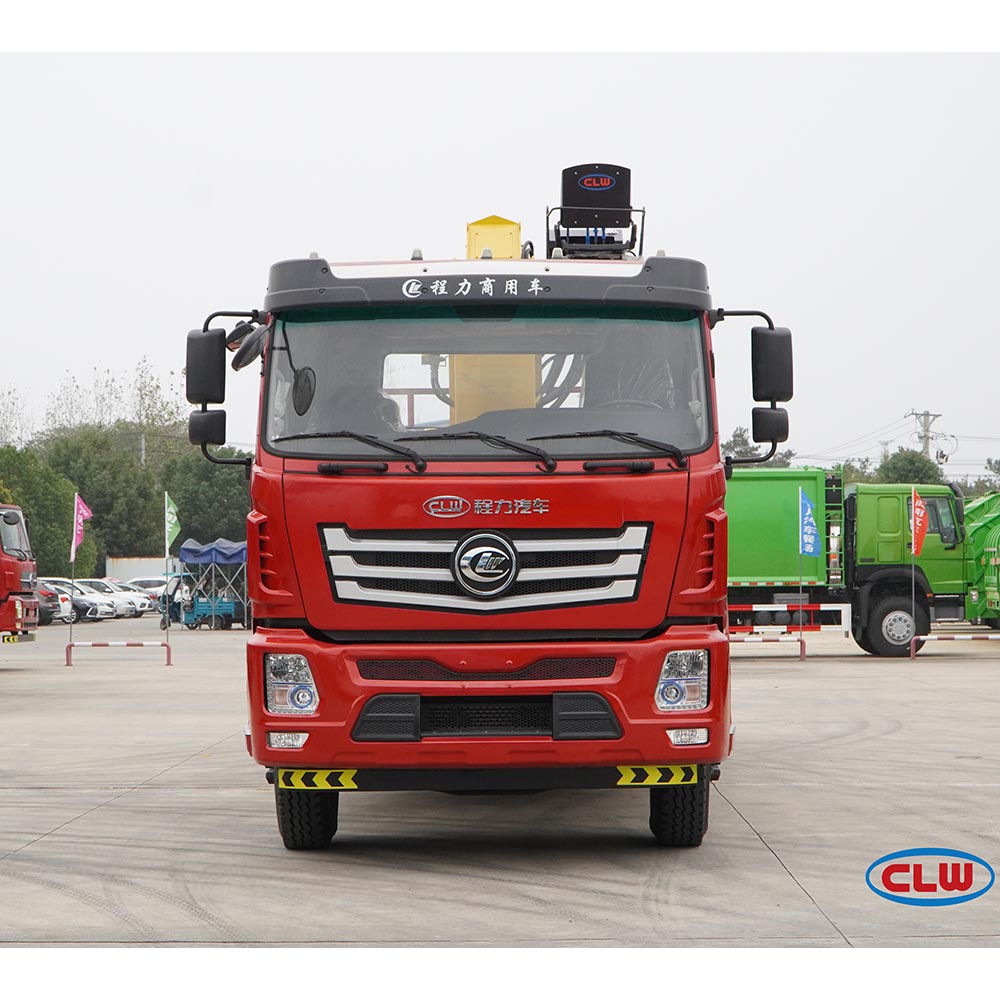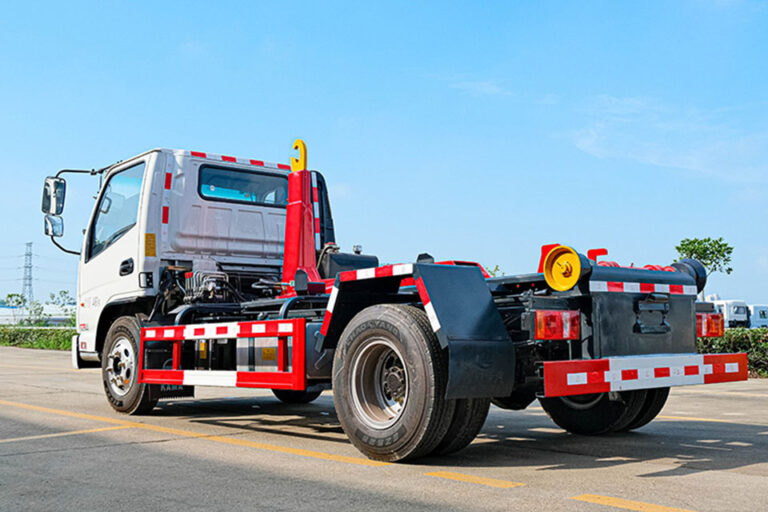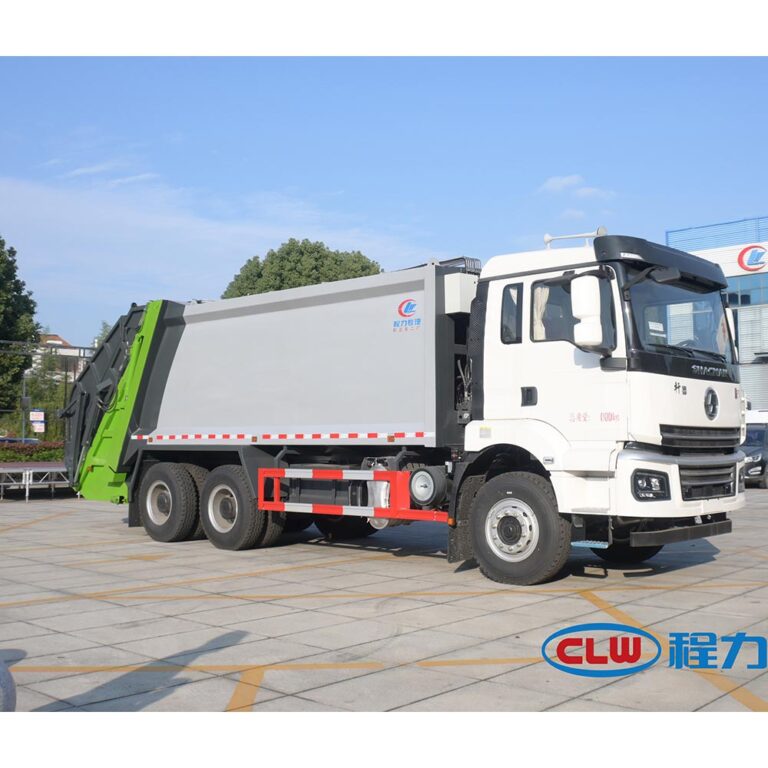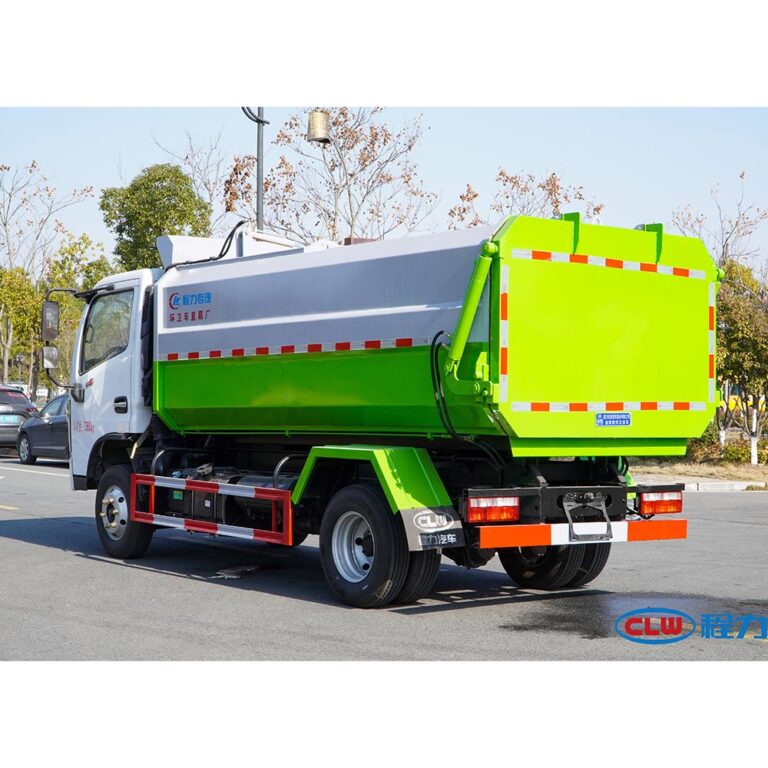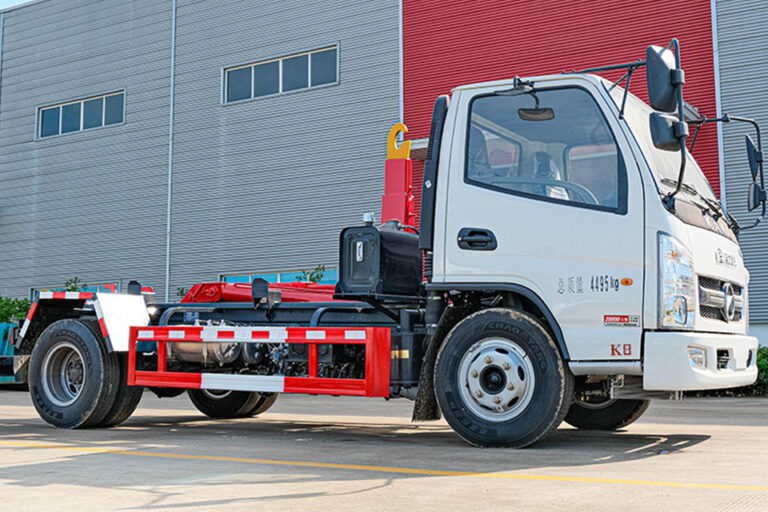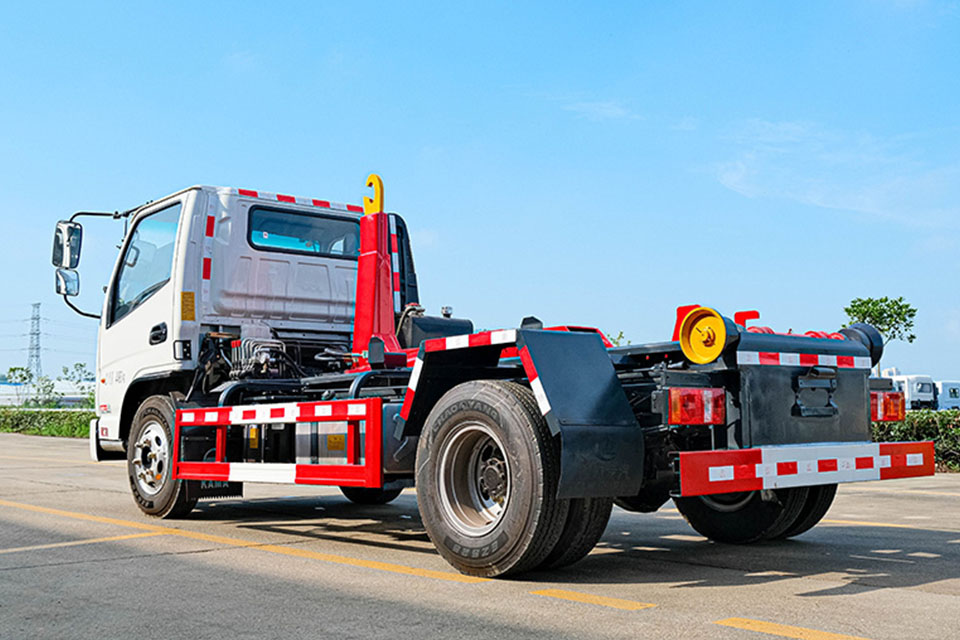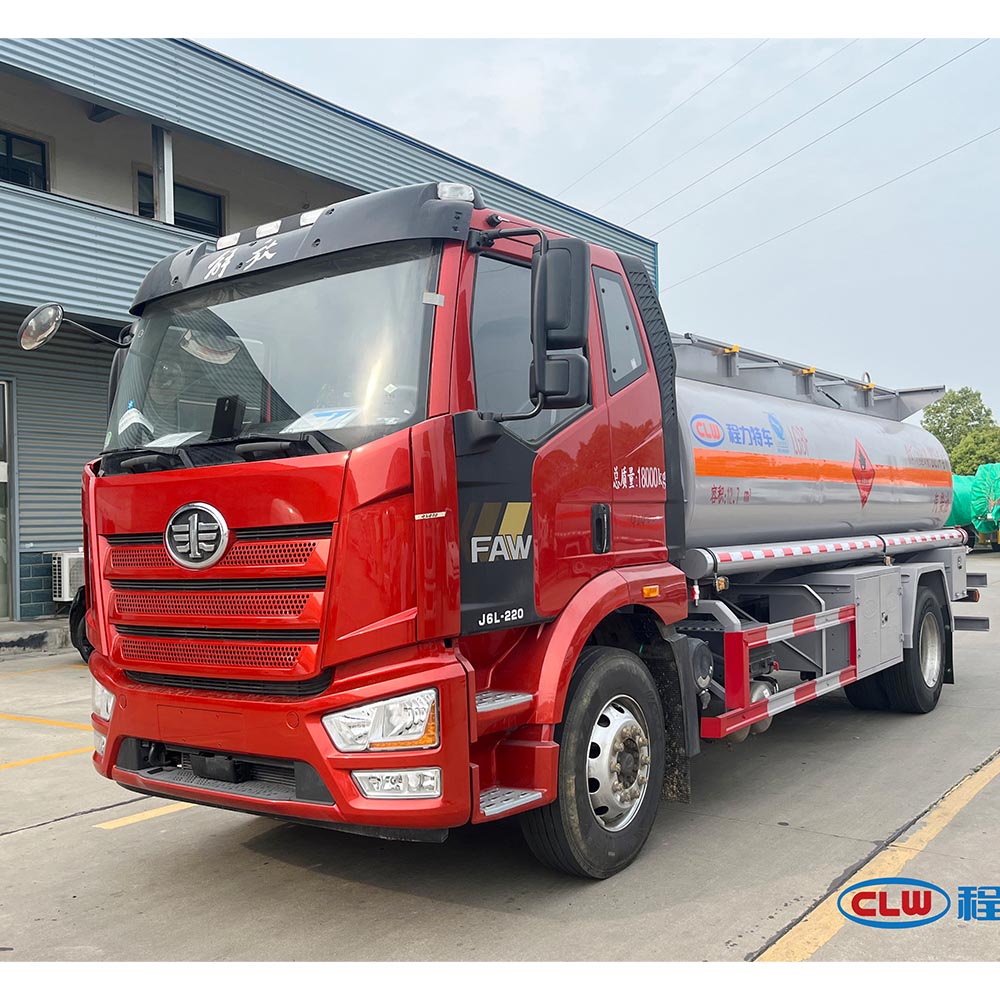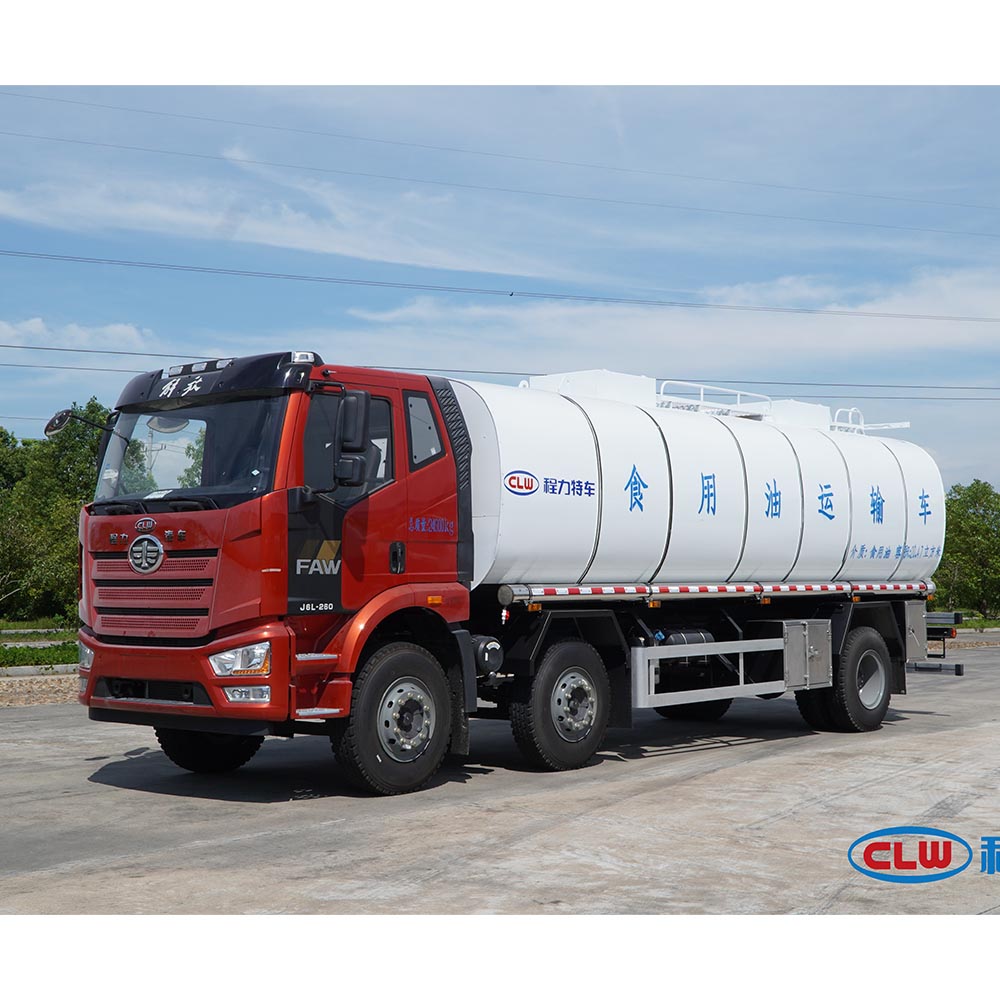-
程力汽车工业园
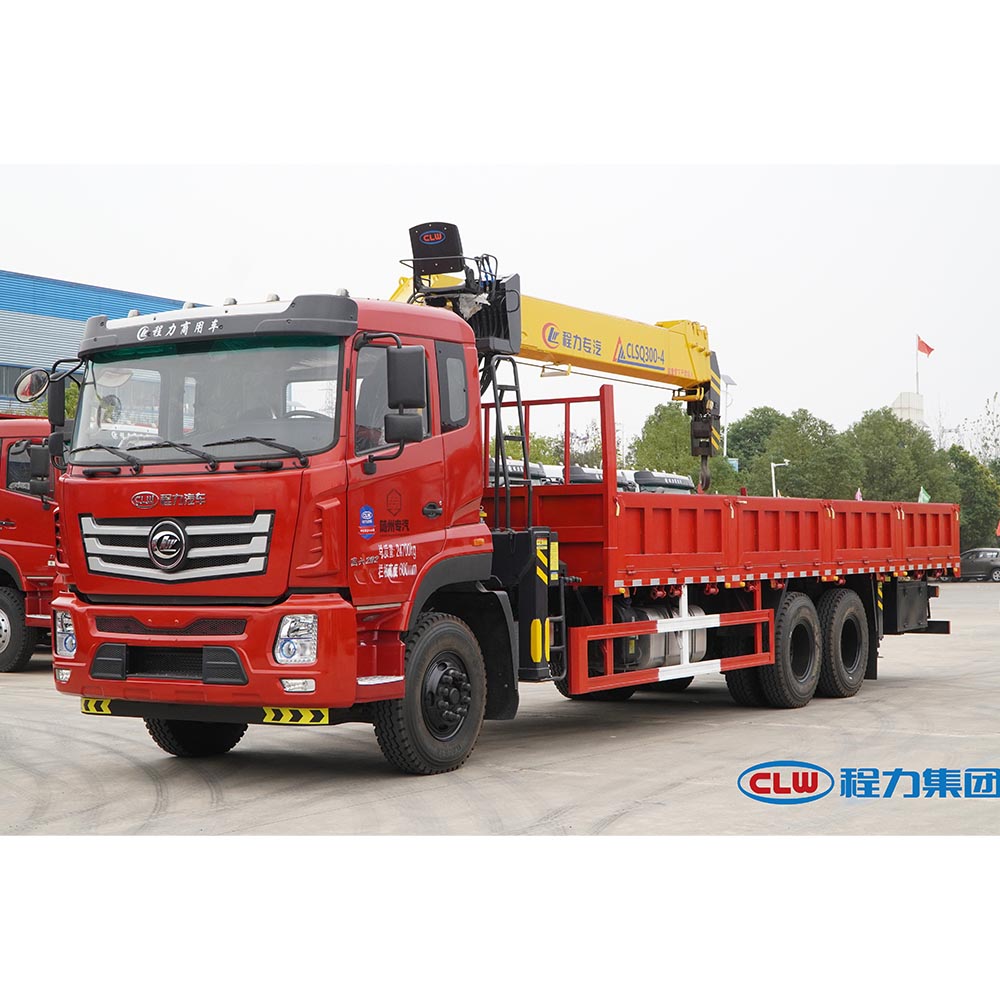
车载式起重机有哪些缺点
车载式起重机:企业的优势和劣势
本文将深入探讨 随车起重机探索他们的 利弊 来帮助您确定它们是否适合您的业务需求。无论您是总承包商、钢结构架设商,还是从事任何需要重型起重的行业,了解这些设备的能力和局限性都将对您有所帮助。 鹤 至关重要。作为全球领先的车载式 吊车 我们的制造商具有独特的优势,可以在这一重要的决策过程中为您提供指导。我们的目标是以丰富的经验为后盾,为您提供所有必要的信息,帮助您做出明智的选择。请继续阅读,因为这可能会改变您的运营效率和盈利能力!
目录
什么是车载起重机,它如何工作?
A 随车起重机 是一个 起重机类型 其中 吊车 安装在 卡车 底盘这 起重机类型 结合了 卡车 的起重能力 吊车.......。 吊车 通常安装在车辆尾部,在车头和车尾之间。 驾驶室和货箱 的 卡车为起重作业提供稳定的平台。我们的制造工艺确保每个 吊车 与 卡车保持 卡车的 稳定性和机动性。轿厢 液压 系统为 起重机的 运动,使其能够抬起和移动 重负 精确。例如,我们的一个客户是一家桥梁建筑公司,他利用我们的 随车起重机 高效地将桥梁吊装到位,展示了 起重机的 在苛刻的环境中也能发挥功效。我们可以用它来提升笨重的货物,例如 爆破器材运输车.
车载式起重机 设计用于在各种地形上作业。它们配有支腿,可在起重作业时伸展以提供稳定性。掘进机 起重机操作员在 起重机的 驾驶室,控制 起重机的 通过一系列杠杆和控制装置实现运动。该系统 吊臂可以是 直臂 或 变幅旋臂,伸展到所需的高度和距离。缆线 液压 系统可精确控制 发出隆隆声 和被提升的负载。 起重机 在起重时结合使用配重和支腿以保持稳定 重负.A 随车起重机 是一款功能强大、用途广泛的起重设备。
使用车载式起重机的主要优势是什么?
其中一个主要 优势 的 随车起重机 是它们的机动性。不同于 塔式起重机 或其他固定装置 鹤, 随车起重机 可以很容易地从一个地方开到另一个地方。因此,对于需要 鹤 在多个地点工作,或从事 吊车 需要移动 现场周围.例如,屋顶承包商可以使用 随车起重机 早上把材料吊到屋顶上,然后再把它们搬到楼顶上。 吊车 到不同的 工作场所 在下午。
它们的另一个显著优势是用途广泛。 车载式起重机 有多种尺寸和规格可供选择。 起重能力因此,它们适用于各种应用。从建筑材料到重型机械,它们都可以用来提升和移动。它们是 常用 在建筑、工业环境,甚至住宅项目中,我们都能提供优质的服务。我们的 鹤 是 通常使用 总承包商、钢架安装工、预制混凝土安装工和其他许多专业人员都需要 繁重 提升能力。该设备 多功能性 的 随车起重机 使其成为 经济有效的解决方案 对许多企业来说都是如此。它们是 设计用于 有效地减少停机时间,最大限度地提高生产率。 起重机可以吊起 重物,如 压裂砂罐车帮助您开展工作。
| 特点 | 优势 |
| 流动性 | 可在不同工作地点之间轻松运输,减少安装时间。 |
| 多功能性 | 适用于各种起重任务和行业。 |
| 经济高效 | 可替代多台专用起重机,节省租赁费用。 |
| 设置速度 | 支腿和吊臂的快速展开和收缩。 |
车载式起重机与其他类型起重机相比有何优势?
在比较 随车起重机 给其他 不同类型的起重机例如 履带式起重机 或 越野起重机因此,必须考虑项目的具体需求。 履带起重机 具有出色的稳定性和 起重能力 但缺乏 随车起重机.它们更适合单个项目的长期项目。 工地 不需要经常出差。 越野起重机 它们专为越野而设计,可以应对各种复杂地形,但可能不适合在高速公路上行驶。
移动式起重机 是另一个需要考虑的类别。虽然所有 随车起重机 是 移动式起重机不是全部 移动式起重机 是 车载.其他 移动式起重机类型 包括全地形 鹤它们兼顾了公路和越野能力。这些 鹤 如果您的项目需要使用 吊车 它们可以长途跋涉,应对各种地形。不过,它们可能比 随车起重机.最终,最好的 起重机类型 这取决于项目的地形、所要求的 起重能力的距离 吊车 需要旅行。 车载式起重机 它们将移动性和多功能性独特地结合在一起,是许多应用场合的绝佳选择。
使用车载式起重机有什么缺点吗?
虽然 随车起重机 提供许多 优势还有一些 缺点 需要考虑。一个潜在的缺点是它们有限 起重能力 与较大的 鹤例如 塔式起重机 或一些 履带式起重机.如果您的项目需要特别的吊装 重负, a 随车起重机 可能不是最佳选择。此外 起重机的 地面不平或强风都会影响其稳定性,从而限制其在某些条件下的使用。
另一个考虑因素是操作 随车起重机.......。 卡车 加长支腿需要很大的空间,这可能会限制拥挤的 工地或在城市地区。关键是要评估 工作环境 并确保有足够的空间安全操作 吊车.此外 费用 购买和维护 随车起重机 可观。虽然它们可以 经济有效 从长远来看,初始投资可能会成为某些企业的障碍。我们提供融资方案,帮助客户获得所需的设备。
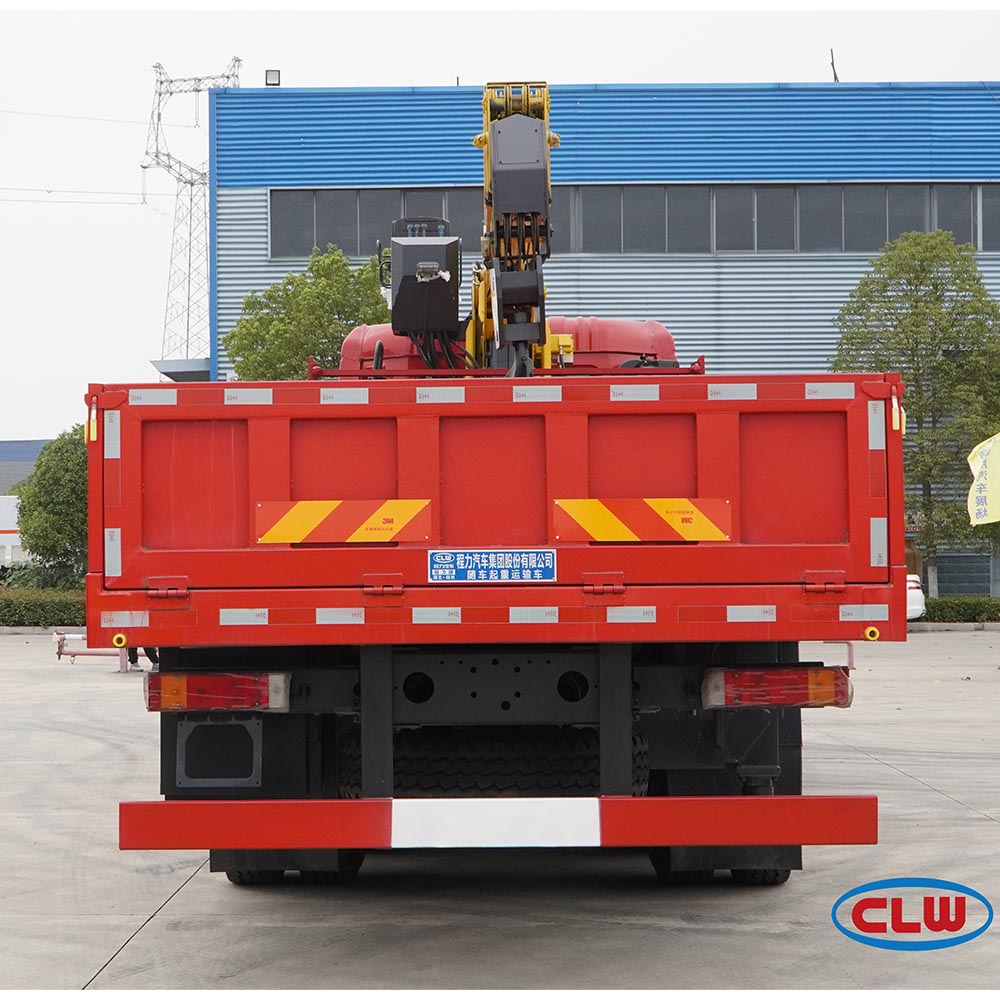
哪些行业最受益于车载式起重机?
车载式起重机 被广泛应用于各行各业,包括
- 建筑: 总承包商、钢结构架设商、预制混凝土安装商、屋顶承包商和幕墙安装商都依赖于 随车起重机 用于各种任务,如提升钢梁、安装混凝土板和铺设屋顶材料。一项涉及钢结构安装公司的案例研究表明,使用我们的 随车起重机 由于其快速安装和移动性,项目时间缩短了 20%。
- 基础设施 桥梁建设公司、道路建设公司和公用事业公司(电力、电信、供水和供气)使用 随车起重机 用于桥梁建设、道路维护和电线杆安装。 车载式起重机 由于可以在不同的项目现场之间轻松移动,因此是这些行业的理想选择。
- 工业 工厂、炼油厂、化工厂和采矿作业使用 随车起重机 设备安装、维护和材料处理。设备 多功能性 的 随车起重机 使其适用于这些工业环境中的各种任务。它们 繁重 这种结构可确保它们能够应对这些环境的要求。
- 其他 造船和维修公司、港口和码头运营商、机场、铁路公司、 吊车 租赁公司、设备租赁公司、重型运输公司、物流公司、标牌安装公司、风能公司、树木护理和移除公司、电影和制作公司以及政府机构也在使用该系统。 随车起重机 以满足他们的特殊需求。
如何根据需要选择合适的车载式起重机?
选择 右起重机 这对项目的安全和效率至关重要。以下是一些需要考虑的因素:
- 提升能力: 确定您需要提升的最重货物的重量,并选择一台 吊车 用 起重能力 超过该重量。重要的是,不仅要考虑负载的重量,还要考虑 起重机的 和角度 发出隆隆声.
- 伸展长度和臂长 考虑您需要达到的高度和距离,并选择一个 吊车 与适当的 发出隆隆声 长度。请记住 起重机的起重能力 随着 发出隆隆声 延长。
- 移动性和地形: 评估 吊车 将运行。如果您需要在高速公路上行驶,请使用 随车起重机 是一个不错的选择。对于越野用途,一辆 越野起重机 或全地形 吊车 可能更合适。
- 空间限制: 评估 工作场所 并确保有足够的空间操作 吊车 安全地。考虑 卡车的 尺寸和支腿所需的空间。
当您 寻找合适的 随车起重机 为您的企业提供服务,必须与声誉良好的 起重机公司 提供专业指导和支持。我们与客户密切合作,了解他们的具体需求,并推荐最佳方案。 吊车 的应用。
车载式起重机的起重能力是多少?
"(《世界人权宣言》) 起重能力 的 随车起重机 视具体型号和配置而定。 车载式起重机 有多种 起重能力从几吨到 100 多吨不等。较小的 随车起重机 适用于需要更大机动性的轻型负载和项目,而较大的 鹤 设计用于 重型起重 在苛刻的环境中。该系统 起重能力 通常在 起重机的 载荷图,该图提供了有关 起重机的 在不同 发出隆隆声 长度和角度。
值得注意的是 起重能力 的 随车起重机 受多种因素影响,包括 发出隆隆声 长度、角度 发出隆隆声以及使用支腿。桅杆 起重机的 稳定性对于安全起重作业至关重要,而支腿在提供稳定的基础方面发挥着至关重要的作用。支腿 起重机操作员 必须认真按照负载表进行操作,并确保 吊车 没有被重载。重载一个 吊车 会导致事故和设备损坏。
车载起重机的维护要求是什么?
定期维护对于确保设备的安全和高效运行至关重要。 随车起重机.......。 起重机的 各种组件,包括 液压 系统 发出隆隆声应定期检查缆绳和支腿的磨损情况。任何损坏或磨损的部件都应及时更换,以防止事故发生,并确保 起重机的 持续可靠性。该系统 卡车 底盘还需要定期保养,包括发动机保养、轮胎检查和制动检查。
作为 随车起重机 生产商,我们为我们的 鹤.我们建议客户认真遵守这些准则,并与合格的技术人员合作,定期进行检查和维护。适当的维护不仅能确保 起重机的 安全,但也有助于延长其 使用寿命这样就能获得更好的投资回报。我们还为客户提供维护和维修服务,确保他们的 鹤 保持最佳状态。
起重机操作员在使用车载起重机时如何确保安全?
在操作 随车起重机.......。 起重机操作员 在确保起重作业安全方面起着至关重要的作用。操作前 吊车操作员应彻底检查设备,检查 液压 系统 发出隆隆声检查电缆和支腿是否有损坏或磨损的迹象。操作员还应评估 工作环境考虑到地形、天气条件和是否存在障碍物等因素。
在吊装过程中 起重机操作员 必须认真按照负载表进行操作,并确保 吊车 不超载。操作员还应与地面工作人员保持持续沟通,使用手势或无线电通信来协调升降。必须避免突然的移动或抽搐,因为这可能会破坏升降机的稳定性。 吊车 或导致负载摆动。缆线 起重机操作员 还应注意 起重机的 限制,并避免操作 吊车 在不安全的情况下,如强风或不平的地面。
随车起重机技术的未来趋势是什么?
"(《世界人权宣言》) 随车起重机 随着新技术和创新的不断发展,运输业的安全、效率和性能也在不断提高。其中一个趋势是自动化和远程控制系统的使用越来越多。这些系统可以 起重机操作员 以控制 吊车 安全距离,降低事故风险,提高能见度。另一个趋势是混合动力和电动汽车的发展 随车起重机.这些 鹤 降低了排放和噪音水平,使其更加环保,适合在城市地区使用。
另一个发展领域是先进材料的使用,如高强度钢和复合材料。 吊车 施工。这些材料可以减少 起重机的 重量,同时保持或增加其 起重能力.这可以提高燃料效率,降低运输成本。此外,人们越来越重视改善 起重机的 远程信息处理和数据分析功能。这些系统可以提供有关 起重机的 性能、维护需求和位置,帮助优化运行并减少停机时间。
常见问题
随车起重机和移动式起重机有什么区别?
全部 随车起重机 是 移动式起重机但并非全部 移动式起重机 是 车载. 移动式起重机 是一个宽泛的术语,包括各种 起重机类型 可以随意移动,而 随车起重机 是一个特定的 鹤身 其中 起重机安装完毕 在 卡车 底盘其他 移动式起重机类型 包括全地形 鹤, 履带式起重机和 越野起重机.
车载式起重机的典型起重能力是多少?
"(《世界人权宣言》) 起重能力 的 随车起重机 差异很大,通常从几吨到 100 多吨不等。具体 起重能力 取决于 吊车.您可以在 起重机的 负荷图。还有 起重机能举起 例如,有各种东西、 程力东风平板加油车.
使用随车起重机有哪些优缺点?
主要 优势 的 随车起重机 这是因为它们机动灵活、用途广泛,而且安装时间相对较短。它们可以方便地在工作地点之间行驶,适用于各种起重任务。不过,有些 缺点 包括其有限的 起重能力 与较大的 鹤 以及操作所需的空间。在不平的地面上,稳定性也是一个问题。
如何根据需要选择合适的随车起重机?
至 选对 随车起重机考虑的因素包括您需要提升的负载的重量和尺寸、所需的伸展距离以及所需的重量。 发出隆隆声 长度的地形 吊车 将运行的设备的空间限制,以及 工作场所.咨询有信誉的 起重机公司 或像我们这样的制造商寻求专家建议。
随车起重机需要哪些维护?
定期维护对以下方面至关重要 随车起重机.这包括检查 液压 系统 发出隆隆声缆绳、支腿和 卡车 检查底盘的磨损情况。损坏的部件应及时更换。遵循制造商的维护指南并与合格的技术人员合作,对于确保安全高效地运行至关重要。
车载式起重机可以在任何地形上使用吗?
车载式起重机 虽然设计用于公路,但也能应对相对平坦和稳定的越野路况。但是,对于非常崎岖或不平坦的地形,则需要一辆 越野起重机 或全地形 吊车 可能更合适。(二)... 起重机操作员 应始终评估 工作环境 并确保地面足够稳定,可以支撑起 吊车 及其支腿。
结论
以下是需要记住的最重要的事项 随车起重机:
- 车载式起重机 提供了移动性和多功能性的独特组合。
- 它们适用于各种行业和应用。
- 选择 右起重机 需要仔细考虑以下因素 起重能力由于距离、地形和空间的限制。
- 定期维护对安全高效地运行至关重要。
- "(《世界人权宣言》) 随车起重机 工业在不断发展,新技术也在不断开发,以提高性能和安全性。
- 与我们这样声誉卓著的制造商合作,可以帮助您选择最好的 随车起重机 并提供持续支持。
我们希望这本全面的指南能够为您提供有价值的见解,让您了解以下世界 随车起重机.作为该行业的领先制造商,我们致力于为客户提供高品质的设备和专业支持。如果您正在考虑增加一台 随车起重机 我们鼓励您与我们联系,讨论您的具体需求,进一步了解我们的产品如何为您的业务带来益处。我们相信,我们的 随车起重机 可以帮助您提高效率、降低成本并加强项目的安全性。让我们携手合作,将您的起重作业提升到新的高度!您可以找到以下卡车 Furika 加油车 和 大容量碳钢加油车 在我们的网站上。
